By Kristen Opalinski
The first time I met Archbishop Desmond Tutu was in the lead up to COP 17, the United Nations climate change conference (the seventeenth session of the Conference of the Parties). The conference took place in Durban, South Africa, November 28 – December 9, 2011. I was in my second year serving as the communications officer for the Lutheran Communion in Southern Africa and I attended the conference on behalf of The Lutheran World Federation’s regional office. I was part of an interfaith delegation that was finalizing the first Interfaith Declaration on Climate Change in order to present it to United Nations leadership. Faith leaders from across the globe had gathered and united for one goal – to advocate on behalf of all people, for the protection of resources, and to ensure a healthy and equitable future for our planet and all its inhabitants.
The day before the meetings were to begin, we were gathered with hundreds of people at a pre-conference rally. Various people took the stage throughout the afternoon to build morale and encourage those in attendance to dig down deep for what would be a difficult two weeks of deliberation. Just as the afternoon was drawing to a close, one final speaker remained. It was Archbishop Tutu, or simply the Arch as he was affectionately known in his native South Africa. He stepped up to the podium with a warm smile, a smile that quickly turned into a steely gaze. “Do not remain quiet!” he implored, “Do not waste a single moment. This is a critical moment in human history, one that requires each and every one of you, of us, to be fully engaged – the clock is at zero!” The crowd fell silent, we were hanging on his every word as he pressed on. He condemned the sins that brought us to this point, the greed and hyper consumerism that led us to this moment. He didn’t paint any rosy pictures that day or offer any jovial laughs for which he was well known. Instead, he used the moment to shower us with the unvarnished truth of the fight that laid before us.
My first encounter with Archbishop Tutu was with Tutu the rabble rouser, the man who decades earlier led marches through the streets of South African cities with calls for justice in the face of the apartheid machine and emerged as the nation’s moral compass. He would become a moral compass for the world in the years that followed and on that afternoon in late November 2011, I learned my first lesson from the Arch – Do not remain quiet, do not waste a single moment.
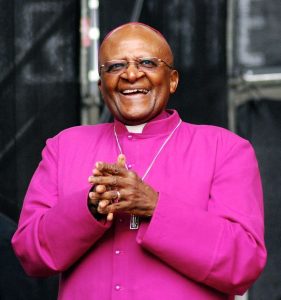
A photo I took of Archbishop Tutu at the COP17 rally in 2011
Our role as faith leaders at COP17 was to provide a moral framing for the conversations and to remind the negotiators that they represented people and the environment, not just government interests. Tutu helped us build a foundation to stand upon in the following weeks, enabling us to deliver a unified declaration to UN leadership, to lead a civil society march through the streets of Durban, to push back against corporate powers who threatened to derail establishing the framework for the Green Climate Fund. I knew I was in the midst of a transformative figure and enveloped in a historic moment. But this was just one of the many moments Tutu helped to transform, one of the many battles he was waging on behalf of the vulnerable and oppressed. His entire life was centered upon a life of advocacy and action on behalf of those in need because that is what Christ calls us into. That was the second lesson I learned from the Arch – Strive to live out Christ’s love in action in all you do.
After our time together in Durban our paths would cross a few more times before I left South Africa in 2014. Over the course of three years, I learned more from Tutu the rabble rouser, but also from Tutu the thoughtful theologian, Tutu the agitating conversationalist, and Tutu the humble host. There were many layers to him and many lessons to learn from each aspect of his personhood.
A few months after our first meeting in Durban I was in Cape Town for a conference and decided to stop by St. George’s Cathedral, where Tutu had served as the Anglican Archbishop of Cape Town from 1986 to 1996. The morning of my visit Tutu was leading a Eucharist service, as he often did. His face immediately lit up when he saw me and after the service, he invited me to join him for breakfast along with a group who was visiting from New York. What followed was a lively conversation about the role of church in the public sphere. He urged us to reclaim faith-based public witness as Americans, to lean into the margins in order to help lead our society away from the individualism that was plaguing us. He urged us to publicly embrace the gospel, namely the Sermon on the Mount, so that society would look to us and see that we were created for interdependence, that there is hope in the midst of all we face if we face it together. That day I learned my third lesson from the Arch – Embrace the gospel in such a public way, so that others might see that hope is alive when we embrace each other’s humanity.
The next time I was in Cape Town my family was visiting from the US. My father and I went to St. George’s for the Friday morning Eucharist, which Tutu was again leading. After the service I introduced him to my father and they were thrilled to meet each other. He told us we should get a photo together. I remember my father and I standing on either side him. He looked at me with a scowl and said, “What are you doing? You must be in the middle my dear, you are the rose between these two old thorns.” We all laughed as the photo was snapped. Afterwards, Tutu invited us to breakfast. He arrived at the café below St. George’s wearing a shirt that read “This is What Old Looks Like” – a perfect reflection of his humorous, joy-filled disposition. Many jokes were shared that morning and I learned my fourth lesson from the Arch – Laugh often, live a joy-filled life, and don’t take yourself too seriously.
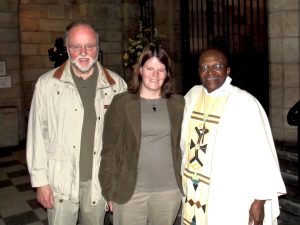
A rose between two old thorns
My final in-person encounter with the Arch came in late 2013, just months before my return to the United States. Again, I was in Cape Town for a conference and decided to stop by St. George’s. Tutu was there, and immediately invited me to join him for what would be our last breakfast together. This time though it was just he and I, and plate of delicious pumpkin fritters. What unfolded in that final conversation felt like a culmination of the previous three years of lessons. He asked me about my work, my family, and what brought me joy. We dove deep into theological musings, about incarnational theology and Ubuntu theology. It was as if we covered everything and yet only scratched the surface. I did not know that it would be my last time with the Arch, but the lessons he shared with me that day will last a lifetime. He reminded me to never loose sight of how I am connected to every other person on earth, every other living thing, that we are all part of God’s tapestry. That my thread in that tapestry is as important, but not more important, than every other thread. His parting words to me will forever be engrained in my mind, “Stay well my dear and keep getting into trouble, the kind of trouble that changes the world.” That was the final lesson I learned from the Arch.
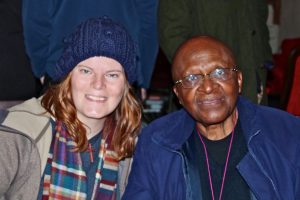
A photo from our final breakfast together in 2013
In the early morning hours of December 26th, 2021, text messages poured in from friends in South Africa letting me know that the Arch had passed. I was flooded with emotions – sorrow at the realization that the world had lost one of its great lights paired with gratitude that God had gifted us with his light for over 90 years. Tutu represented the very best of our humanity. He was a staunch advocate for equitable justice, the kind of justice that doesn’t simply seek to right the wrongs of our society, but to do so by digging deep into the nature of our wounds, of our sin, in order to reveal the many truths that connect us. Tutu understood that any path forward must be rooted in our humanity. From HIV and AIDS advocacy, to standing up for the rights of the LGBTQIA+ community, and being a global voice for the Palestinian people in the face of Israeli occupation – Tutu knew that we were made for goodness, but that peace and reconciliation are ongoing journeys, not finite destinations.
It was an honor to have had the opportunity to spend time with him, to learn from him, to receive the Eucharist from him, and to break bread with him. Our conversations were always lively, passionate affairs from which I emerged feeling like I could truly transform the world. He had an indescribable presence about him, the kind of presence that gave you a glimpse of God’s inbreaking kingdom and audacious humor in a singular moment. I will cherish the lessons I learned from the Arch, but more importantly, I will find ways to share them so that they may be carried forward and cultivated by others.
I invite you to learn your own lessons from the Arch by reading his books, including No Future Without Forgiveness, God Has a Dream: A Vision of Hope for Our Time, and God is Not a Christian: And Other Provocations. A full list can be found on his Goodreads page. Additionally, there are a few excellent biographies on Tutu, including John Allen’s Rabble-Rouser for Peace and Michael Battle’s Desmond Tutu: A Spiritual Biography of South Africa’s Confessor.
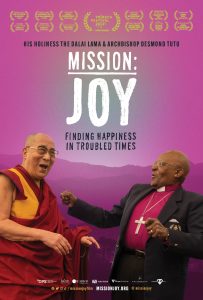
You’re invited to celebrate Tutu’s legacy this month by hosting a free screening of the film Mission: JOY, a new documentary that follows the friendship of Archbishop Tutu and the Dalai Lama. Register between now and February 28th to host your screening at your congregation or through a digital gathering. This opportunity is being graciously provided by Roco Films and the film’s producers, through an invitation from The Episcopal Church.
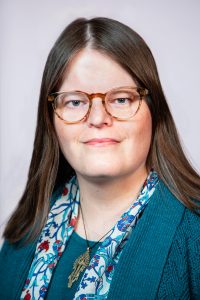
Kristen Opalinski serves as manager for Ecumenical and Interreligious Relations for the ELCA.



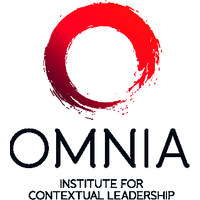
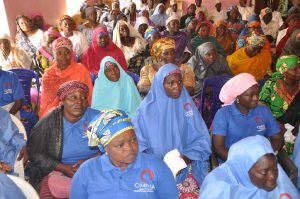
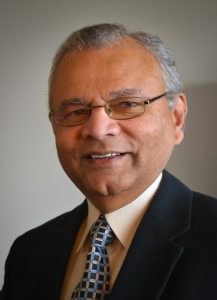
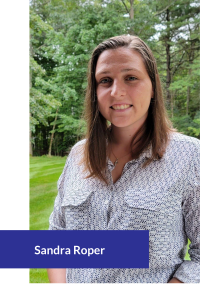
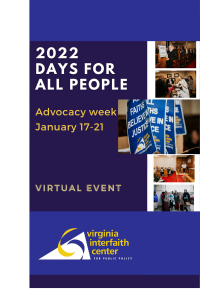






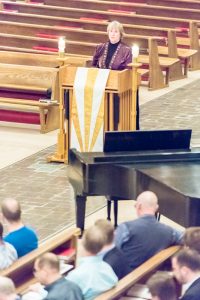 Susan Palo Cherwien, Lutheran hymnwriter and poet,
Susan Palo Cherwien, Lutheran hymnwriter and poet,  Several more of her hymns are published in three volumes available from Augsburg Fortress:
Several more of her hymns are published in three volumes available from Augsburg Fortress: 
